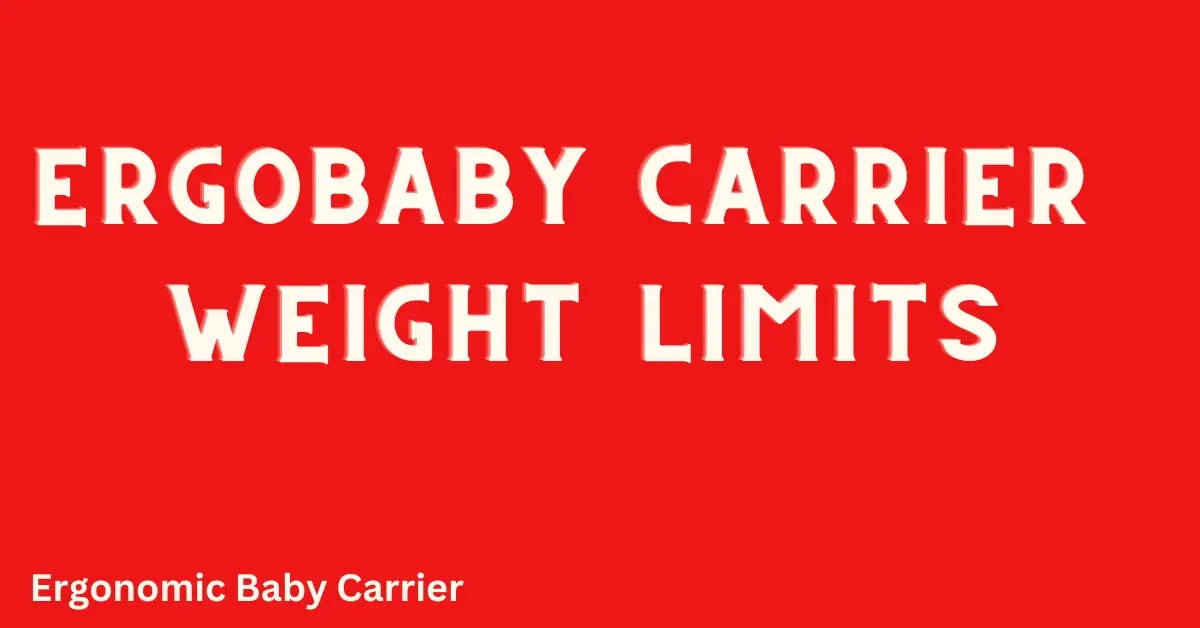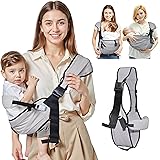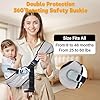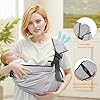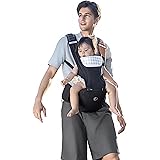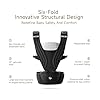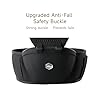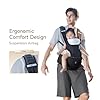Oblitor Baby Carrier Newborn to Toddler,Adjustable Baby Sling Carrier,Comfortable and Lightweight Toddler Carrier for 25-60 lbs,Ideal for Shopping Travelling
EUR 21.95 (as of February 19, 2026 01:20 GMT +00:00 - More infoProduct prices and availability are accurate as of the date/time indicated and are subject to change. Any price and availability information displayed on [relevant Amazon Site(s), as applicable] at the time of purchase will apply to the purchase of this product.)If you’re a parent or caregiver, you understand the importance of a reliable baby carrier. It’s a tool that keeps your little one close while allowing you to go about your day with your hands-free. Among the many options available, Ergobaby carriers stand out for their quality and comfort. In this comprehensive guide, we’ll delve into the world of Ergobaby carrier weight limits, ensuring you have all the information you need to choose the right carrier for your needs.
Read the Related Article On How to Wash Ergobaby Carriers
Introduction to Ergobaby Carriers
Ergobaby carriers are renowned for their ergonomic design, allowing parents to carry their babies in a natural and comfortable position. These baby carriers are designed to distribute the baby’s weight evenly, reducing strain on the wearer’s body.
Understanding Weight Limits
Weight limits play a crucial role in ensuring the safety and comfort of both the baby and the wearer. Each Ergobaby carrier model comes with specific weight recommendations to ensure optimal performance.
Ergobaby Carrier Types and Their Weight Capacities
Ergobaby Embrace
The Ergobaby Embrace is designed for newborns and infants. It typically supports babies weighing between 7 to 25 pounds. The soft and cozy design of the Embrace provides a secure and snug fit for newborns.
Ergobaby Omni 360
The Ergobaby Omni 360 offers versatility with its four carrying positions. It supports babies from 7 to 45 pounds, making it suitable for both infants and toddlers. The adjustable features accommodate the baby’s growth.
Ergobaby Adapt
The Ergobaby Adapt is known for its ease of use and comfort. It accommodates babies from 7 to 45 pounds. The adjustable seat ensures that your baby is always in an ergonomic M-shape position.
Factors Influencing Weight Limits
Several factors determine the weight limits of Ergobaby carriers. The baby’s age, development, and the carrier’s design all play a role in establishing safe weight capacities.
Safety Considerations
Ensuring your baby’s safety is paramount. Always follow the manufacturer’s guidelines and recommendations regarding weight limits. Using a carrier that exceeds its weight capacity can compromise your baby’s safety.
Choosing the Right Carrier for Your Baby’s Weight
Selecting the appropriate carrier for your baby’s weight is essential for comfort and safety. Refer to the carrier’s manual and labeling to determine which model is suitable for your baby’s weight range.
Tips for Using Ergobaby Carriers Safely
- Proper Positioning: Ensure your baby’s hips are in an ergonomic M-shape position.
- Regular Inspections: Regularly check the carrier for signs of wear and tear.
- Follow Instructions: Always follow the manufacturer’s instructions for usage.
- Check Fit: Make adjustments to achieve a secure fit for both you and your baby.
Maintaining Comfort for Both You and Your Baby
Properly adjusting the carrier’s straps and buckles can significantly enhance comfort. Take the time to find the right fit for both you and your baby.
Beyond Weight Limits: When to Transition
As your baby grows, you’ll need to transition to a carrier that accommodates their weight and development. This usually occurs when your baby reaches the carrier’s upper weight limit or shows signs of discomfort.
Conclusion
Ergobaby carriers provide a convenient and comfortable way to carry your baby while keeping your hands free. Understanding the weight limits of different Ergobaby carrier models is essential for ensuring the safety and well-being of both you and your baby.
FAQs
Can I use an Ergobaby carrier for a newborn?
Yes, the Ergobaby Embrace is designed for newborns and infants.
Can I use the Ergobaby Omni 360 for a toddler?
Absolutely, the Ergobaby Omni 360 supports babies up to 45 pounds.
What should I do if my baby exceeds the carrier’s weight limit?
It’s important to transition to a carrier suitable for their weight to ensure their safety and comfort.
